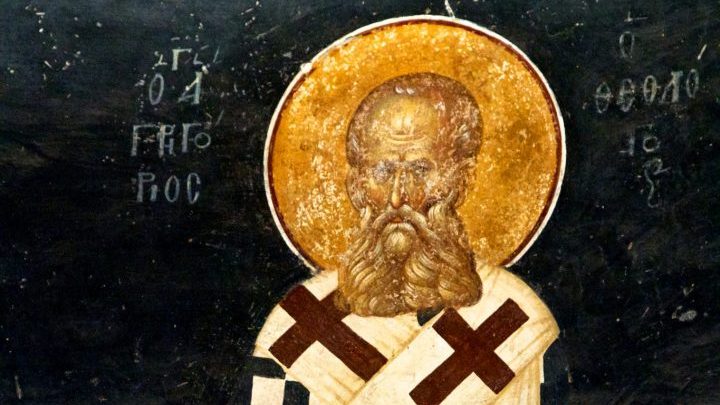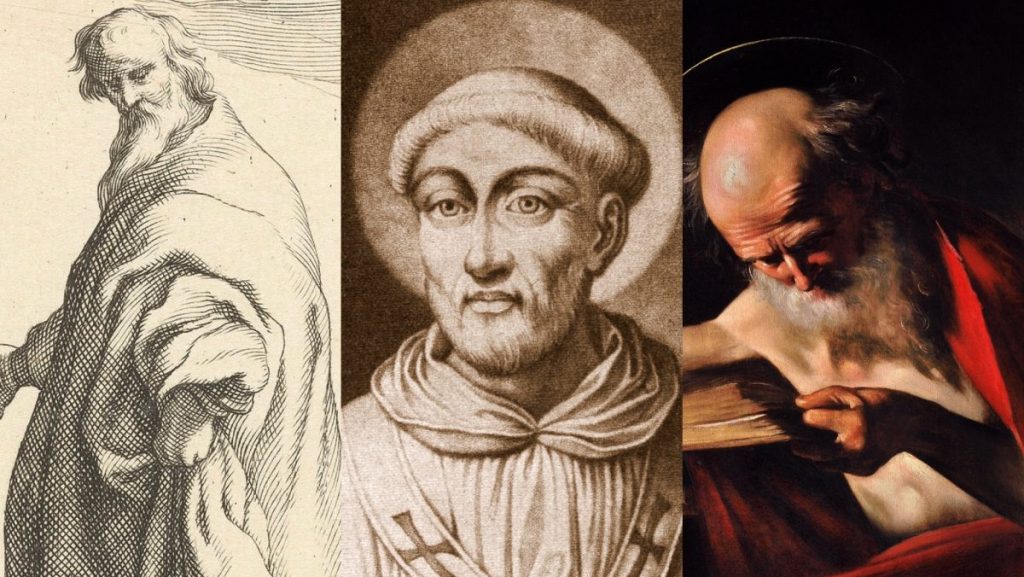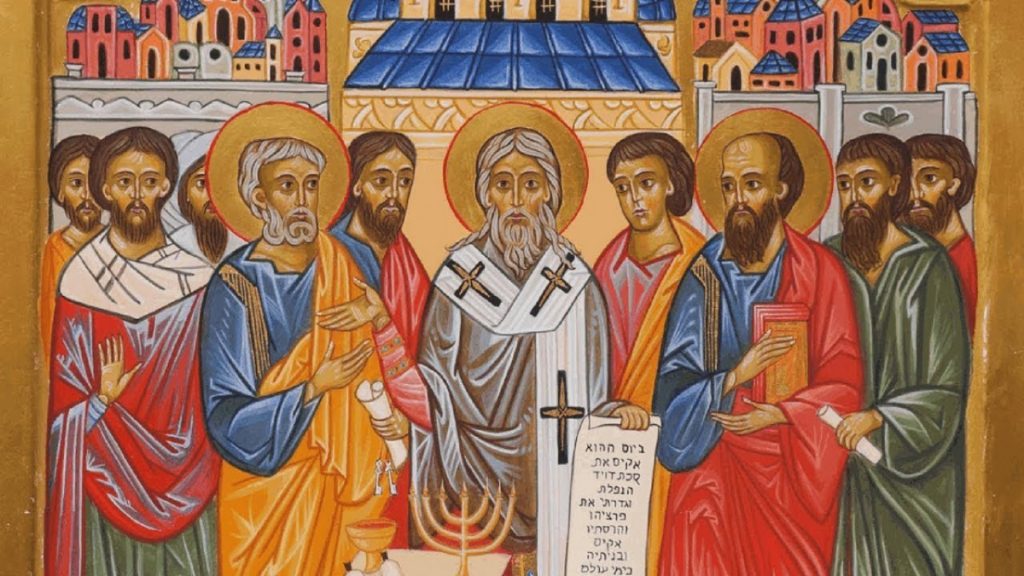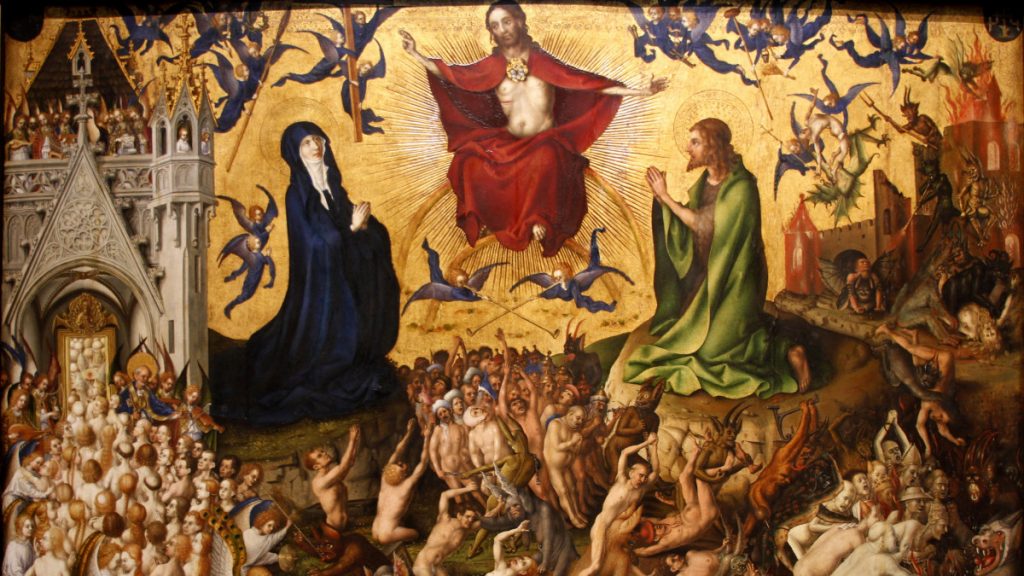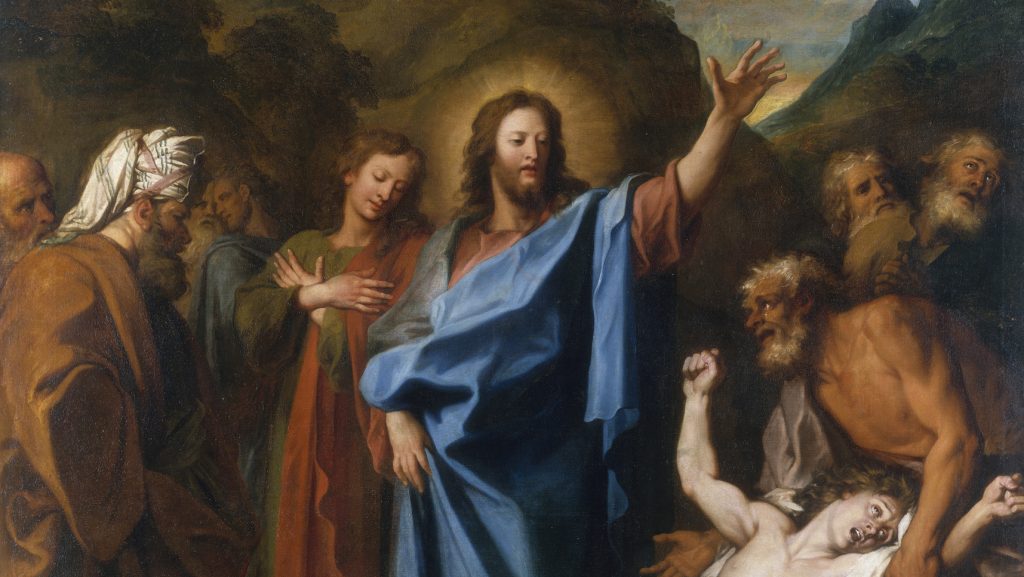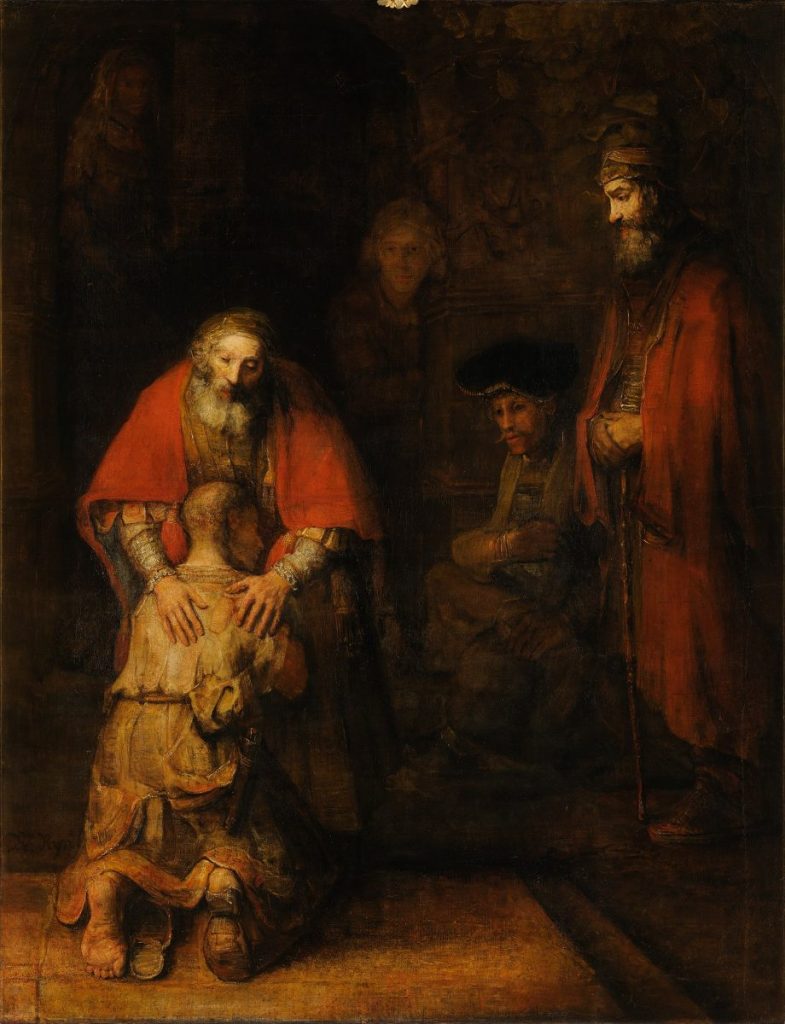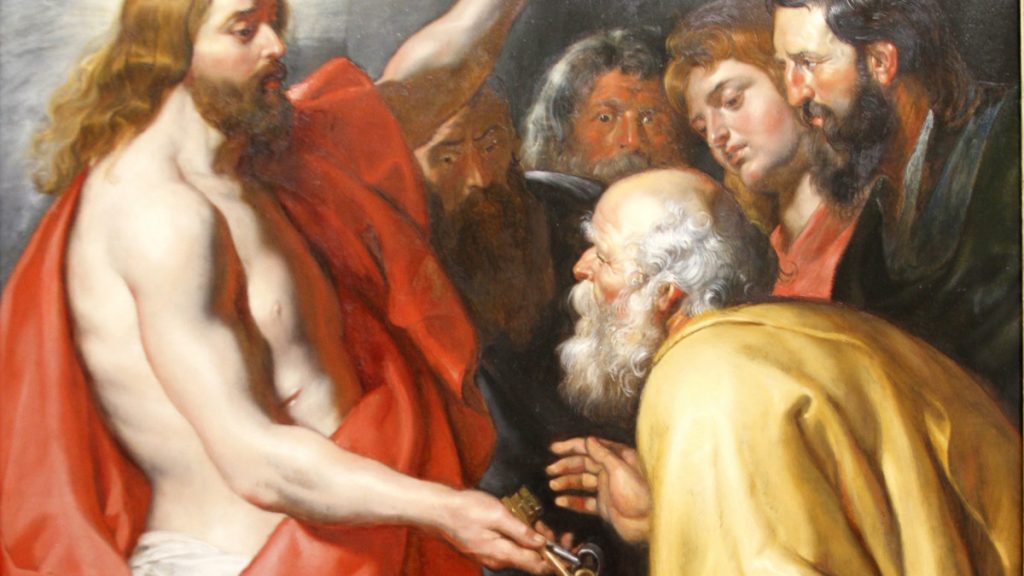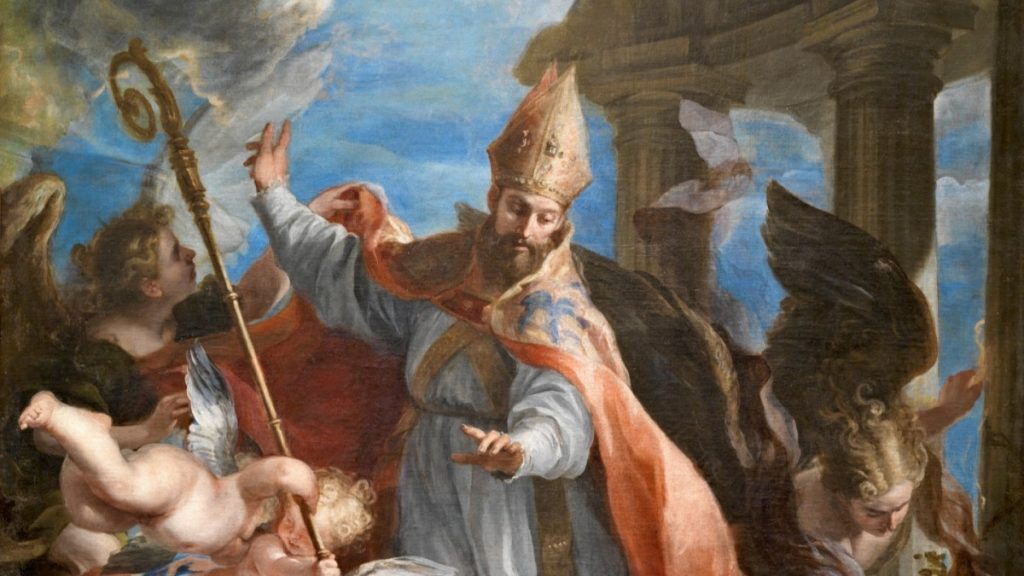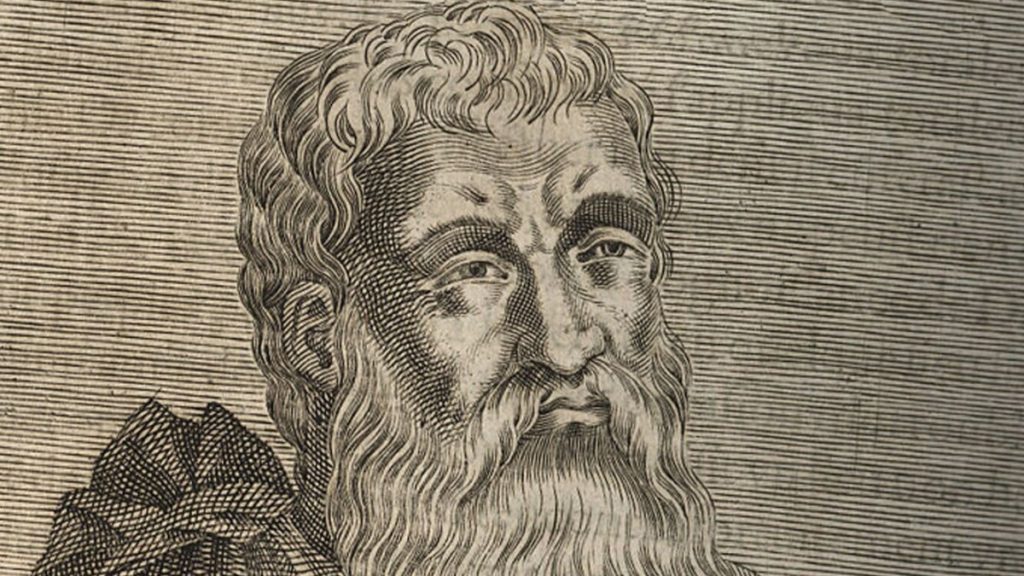(Updated July 16, 2025)
This Author Quote Archive collects pertinent quotes from the Church Father, St. Gregory Nazianzus.
Next to each quote are the Topic Quote Archives in which they are included.
This Quote Archive is being continuously updated as research continues. Quotes marked with “***” have not yet been organized into their respective Topic Quote Archives.
Orations
St. Gregory Nazianzus, Oration 2: Defense of His Flight to Pontus, and the Priestly Office (362)
Since, however, I have mentioned Paul, and men like him, I will, with your permission, pass by all others who have been foremost as lawgivers, prophets, or leaders, or in any similar office—for instance, Moses, Aaron, Joshua, Elijah, Elisha, the Judges, Samuel, David, the company of Prophets, John, the Twelve Apostles, and their successors, who with many toils and labors exercised their authority, each in his own time…
St. Gregory Nazianzus, Oration 5: Second Invective Against Julian
(§3) He [Julian] was daily growing more infuriated against us, as though raising up waves by other waves, he that went mad first against himself, that trampled upon things holy, and that did despite unto the Spirit of Grace: is it more proper to call him Jeroboam or Ahab, those most wicked of the Israelites; or Pharaoh the Egyptian, or Nebuchadnezzar the Assyrian; or combining all together shall we name him one and the same, since he shows himself to have united in himself the vices of them all—the apostasy of Jeroboam, the bloodthirstiness of Ahab, the hardness of heart of Pharaoh, the sacrilegious acts of Nebuchadnezzar, the impiety of all put together! For when he had exhausted every other resource, and despised every other form of tyranny in our regard as trifling and unworthy of him (since there never was a character so fertile in finding out and contriving mischief), at last he stirred up against us the nation of the Jews, making his accomplice in his machinations their well-known credulity, as well as that hatred for us which has smoldered in them from the very beginning; prophesying to them out of their own books and mysteries that now was the appointed time come for them to return into their own land, and to rebuild the Temple, and restore the reign of their hereditary institutions—thus hiding his true purpose under the mark of benevolence.
(§4) And when he had formed this plan, and made them believe it (for whatever suits one’s wishes is a ready engine for deceiving people), they began to debate about rebuilding the Temple, and in large number and with great zeal set about the work. For the partisans of the other side report that not only did their women strip off all their personal ornaments and contribute it towards the work and operations, but even carried away the rubbish in the laps of their gowns, sparing neither the so precious clothes nor yet the tenderness of their own limbs, for they believed they were doing a pious action, and regarded everything of less moment than the work in hand. But they being driven against one another, as though by a furious blast of wind, and sudden heaving of the earth, some rushed to one of the neighboring sacred places to pray for mercy; others, as is wont to happen in such cases, made use of what came to hand to shelter themselves; others were carried away blindly by the panic, and struck against those who were running up to see what was the matter. There are some who say that neither did the sacred place admit them, but that when they approached the folding doors that stood wide open, on coming up to them they found them closed in their faces by an unseen and invisible power which works wonders of the sort for the confusion of the impious and the saving of the godly. But what all people nowadays report and believe is that when they were forcing their way and struggling about the entrance a flame issued forth from the sacred place and stopped them, and some it burnt up and consumed so that a fate befell them similar to the disaster of the people of Sodom, or to the miracle about Nadab and Abiud, who offered incense and perished so strangely: whilst others it maimed in the principal parts of the body, and so left them for a living monument of God’s threatening and wrath against sinners. Such then was this event; and let no one disbelieve, unless he doubts likewise the other mighty works of God! But what is yet more strange and more conspicuous, there stood in the heavens a light circumscribing a Cross, and that which before on earth was contemned by the ungodly both in figure and in name is now exhibited in heaven, and is made by God a trophy of His victory over the impious, a trophy more lofty than any other!
(§5) What will those gentlemen say of these events—they who are wise, as this world goes, and make a fine show of their own cause, smoothing down their flowing beard and trailing before our eyes that elegant philosophic mantle! Reply to me for thyself, thou writer of long discourses, that dost compose incredible stories and gapest up at the skies, telling lies about things celestial, and weaving out of the movements of the stars, people’s nativities and predictions of the future! Tell me of those stars of thine, the Ariadne’s Crown, the Berenice’s Hair, the lascivious Swan, the violent Bull! or, if thou pleasest, tell me of thine Ophiuchus, or of thy Capricorn, or of thy Lion, or all the rest that thou hast discovered for a bad end and made them into gods in constellations! Where dost thou find this cycle in thy science, where the Star that of old moved towards Bethlehem out of the East, that leader and introducer of thy own Wise Men! I, too, have something to tell from the heavens: that Star declared the presence of Christ: this Crown is that of the victory of Christ!
(§6) Thus much is taken from things celestial and sympathizing with our fortunes, in accordance with the mighty harmony and disposition of the universe. What follows let the Psalm finish for me: “Because Thou hast cast down cities,” namely, those ancient ones for the very same acts of impiety, in the middle of the very same offenses against us; some thereof overwhelmed by the floods, others swallowed up by earthquake; so that one is pretty nearly able to apply the remainder: “The memorial of them hath perished with a sound and a destruction noised abroad.” For such has been their fall, and such their ruin, also of those their neighbors who took the most delight in their impiety, so that a very long time were necessary to them for their restoration, even if anyone should have the boldness to undertake it.
(§7) Was it then only earth and heaven, and did not air likewise give a sign on that occasion, and was hallowed with the badges of the Passion? Let those who were spectators and partakers of that prodigy exhibit their garments, which to the present time are stamped with the brandmarks of the Cross! For at the very moment that anyone, either of our own brethren or of the outsiders, was telling the event or hearing it told by others, he beheld the miracle happening in his own case or to his neighbor, being all spotted with stars, or beholding the other so marked upon his clothes in a manner more variegated than could be done by any artificial work of the loom or elaborate painting. What is the result of this? Such great consternation at the spectacle that nearly all, as by one signal and with one voice, invoked the God of the Christians, and propitiated Him with many praises and supplications: whilst many, without further delay, but at the moment of the occurrence, ran up to our priests, and besought them earnestly that they might be made members of the Church, being sanctified by the holy baptism, for they had been saved by means of their fright.
St. Gregory Nazianzus, Oration 18: On the Death of His Father (374)
Yes, I am well assured that his intercession is of more avail now than was his instruction in former days, since he is closer to God, now that he has shaken off his bodily fetters, and freed his mind from the clay which obscured it, and holds intercourse naked with the nakedness of the prime and purest Mind; being promoted, if it be not rash to say so, to the rank and confidence of an angel…
St. Gregory Nazianzus, Oration 21: On the Great Athanasius, Bishop of Alexandria (c. 379-80)
The crowning feat of this faction was the council which sat first at Seleucia, the city of the holy and illustrious virgin Thekla, and afterwards at this mighty city, thus connecting their names, no longer with noble associations, but with these of deepest disgrace; whether we must call that council, which subverted and disturbed everything, a tower of Chalane [Gen. 11:4], which deservedly confounded the tongues—would that theirs had been confounded for their harmony in evil!—or a Sanhedrin of Caiaphas where Christ was condemned, or some other like name. The ancient and pious doctrine which defended the Trinity was abolished, by setting up a palisade and battering down the Consubstantial [the word used by the Council of Nicaea to describe the relationship between the Father and the Son]: opening the door to impiety by means of what is written, using as their pretext, their reverence for Scripture and for the use of approved terms, but really introducing unscriptural Arianism. For the phrase “like, according to the Scriptures,” was a bait to the simple, concealing the hook of impiety, a figure seeming to look in the direction of all who passed by, a boot fitting either foot, a winnowing with every wind [Ecc. 5:9], gaining authority from the newly written villainy and device against the truth. For they were wise to do evil, but to do good they had no knowledge [Jer. 4:22].
St. Gregory Nazianzus, Oration 24: In Praise of St. Cyprian (380)
(§19)2
May you [St. Cyprian] watch over us from above in your mercy and give direction to our lives and words; and may you shepherd this holy flock, or help its shepherd, by warding off from it the ravening wolves who sniff after syllables and phrases [heretics] and by guiding it as much as possible for the best in all else; and by granting to us in greater fullness and clarity the radiance of the Holy Trinity at whose side you now stand, which we worship, which we glorify, whose existence is intimately bound up with our own through our worship of the Father in the Son and of the Son in the Holy Spirit, in whose presence we may in aftertime enter “pure and blameless,” and of which in perfection perfectly partake, in Christ himself our Lord, to whom be all glory, honor, and power forever and ever. Amen.
St. Gregory Nazianzus, Oration 33: Against the Arians, and Concerning Himself (380)
(§3) ***
What liturgical vessels which the multitude may not touch have I given over to the hands of the wicked, of a Nebuzaradan [2 Kings 25:11], chief of the cooks, or of a Belshazzar, who wickedly used the sacred vessels for his revels [Dan. 5:3], and then paid a worthy penalty for his madness? “Altars beloved” as Holy Scripture says, but “now defiled” (Hos. 8:11, LXX). And what licentious youth has insulted you for our sake with shameful writhings and contortions? O precious Throne, seat and rest of precious men, which hast been occupied by a succession of pious Priests, who from ancient times have taught the divine Mysteries, what heathen popular speaker and evil tongue has mounted you to inveigh against the Christian’s faith?
St. Gregory Nazianzus, Oration 39: On the Holy Lights (Epiphany, 381)
Now, since our Festival is of Baptism, and we must endure a little hardness with Him Who for our sake took form, and was baptized, and was crucified; let us speak about the different kinds of Baptism, that we may come out thence purified. Moses baptized but it was in water [Lev. 11], and before that in the cloud and in the sea [1 Cor. 10:2]. This was typical as Paul saith; the Sea of the water, and the Cloud of the Spirit; the Manna, of the Bread of Life; the Drink, of the Divine Drink. John also baptized; but this was not like the baptism of the Jews, for it was not only in water, but also “unto repentance.” Still it was not wholly spiritual, for he does not add “And in the Spirit.” Jesus also baptized, but in the Spirit. This is the perfect Baptism. And how is He not God, if I may digress a little, by whom you too are made God? I know also a Fourth Baptism—that by Martyrdom and blood, which also Christ himself underwent—and this one is far more august than all the others, inasmuch as it cannot be defiled by after-stains. Yes, and I know of a Fifth also, which is that of tears, and is much more laborious, received by him who washes his bed every night and his couch with tears [Ps. 6:6]; whose bruises stink through his wickedness [Ps. 38:5]; and who goes mourning and of a sad countenance; who imitates the repentance of Manasseh [2 Chron. 33:12] and the humiliation of the Ninevites [Jon. 3:7-10] upon which God had mercy; who utters the words of the Publican in the Temple, and is justified rather than the stiff-necked Pharisee [Luke 18:13]; who like the Canaanite woman bends down and asks for mercy and crumbs, the food of a dog that is very hungry [Matt. 15:27].
St. Gregory Nazianzus, Oration 40: On Holy Baptism (January 6, 381)
(§7) …Such is the grace and power of baptism; not an overwhelming of the world as of old, but a purification of the sins of each individual, and a complete cleansing from all the bruises and stains of sin.
(§8) And since we are double-made, I mean of body and soul, and the one part is visible, the other invisible, so the cleansing also is twofold, by water and the spirit; the one received visibly in the body, the other concurring with it invisibly and apart from the body; the one typical, the other real and cleansing the depths. And this which comes to the aid of our first birth, makes us new instead of old, and like God instead of what we now are; recasting us without fire, and creating us anew without breaking us up. For, to say it all in one word, the virtue of Baptism is to be understood as a covenant with God for a second life and a purer conversation. And indeed all need to fear this very much, and to watch our own souls, each one of us, with all care, that we do not become liars in respect of this profession…
(§28) Be it so, some will say, in the case of those who ask for Baptism; what have you to say about those who are still children, and conscious neither of the loss nor of the grace? Are we to baptize them too? Certainly, if any danger presses. For it is better that they should be unconsciously sanctified than that they should depart unsealed and uninitiated…
Poems
St. Gregory Nazianzus, Poem Concerning His Own Life
- The Papacy and the Invincibility of the Church | Lines 563-74
(Lines 563-74)3
Nature has not given us two suns; but she gave us two Romes [Rome and Constantinople], an old and a new, to stand as beacon lights for the whole universe. The only difference between them is that one lights the East and the other the West, but with complimentary and harmonious brilliance. However, in the matter of the faith, the course of one has for a considerable time run smoothly, and it still does [Rome]. As befits the primal see she binds the whole West to the word of salvation, worshiping the total symphony of God. The course of the other [Constantinople] was previously upright; but now it no longer is. I speak of my own city (or rather, not mine now, of course).
Letters
St. Gregory Nazianzus, Letter 101: To Cledonius the Priest, Against Apollinarius (382)
If anyone does not believe that Holy Mary is the Mother of God, he is severed from the Godhead. If anyone should assert that He passed through the Virgin as through a channel, and was not at once divinely and humanly formed in her (divinely, because without the intervention of a man; humanly, because in accordance with the laws of gestation), he is in like manner godless.
St. Gregory Nazianzus, Letter 171: To Amphilochius, Bishop of Iconium (c. 383)
For the tongue of a priest meditating of the Lord raises the sick. Do then the greater thing in your priestly ministration, and loose the great mass of my sins when you lay hold of the Sacrifice of Resurrection…But, most reverend friend, cease not both to pray and to plead for me when you draw down the Word by your word, when with a bloodless cutting you sever the Body and Blood of the Lord, using your voice for the glaive.
Footnotes
- C.W. King, trans., Julian the Emperor (London: George Bell and Sons, 1888), 87-91. ↩︎
- St. Gregory Nazianzus, Martha Vinson, trans., The Fathers of the Church, Vol. 107: St. Gregory Nazianzus, Select Orations (Washington, DC: The Catholic University of America Press, 2003), 156. ↩︎
- St. Gregory Nazianzus, Denis Molaise Meehan, OSB, trans., The Fathers of the Church, Vol. 75: Saint Gregory of Nazianzus, Three Poems, Concerning His Own Affairs, Concerning Himself and the Bishops, Concerning His Own Life (Washington, DC: The Catholic University of America Press, 1986), 93. ↩︎
